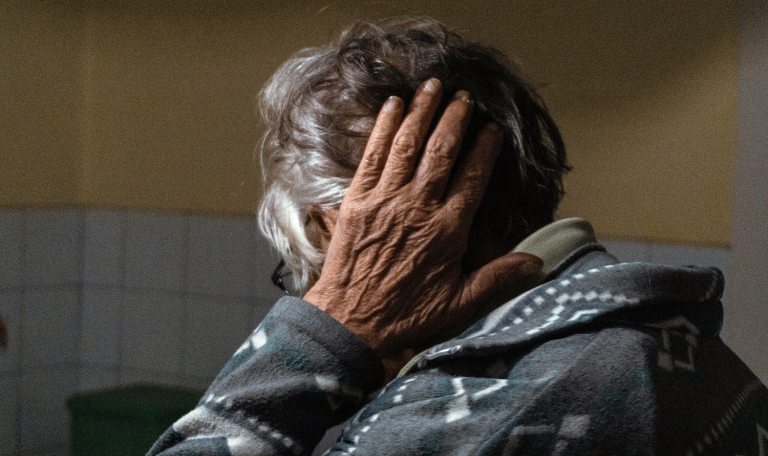Facial analysis app helps reduce pain

A new AI-driven pain assessment app will help care staff in identifying a person’s pain levels and improve care for more than 1,400 residents in Bedfordshire, Luton and Milton Keynes (BLMK). Following an initial pilot project in Central Bedfordshire which supported 465 individuals, further funding was received from the Digitising Social Care (DiSC) Programme’s Adult Social Care Technology Fund to support a further 994 people across BLMK.
[Please note, names have been changed so that the people receiving care remain anonymous]
Anton has advanced dementia and receives end of life care in his care home. The team supporting him noticed that he was distressed, particularly during personal care. The level of his discomfort, which he wasn’t able to communicate verbally, meant that his behaviour could also be challenging.
Following a hospital visit, the team monitored Anton using PainChek®, an app installed on the care team’s work mobile phone or tablet, which recognises micro-facial expressions indicative of pain and uses artificial intelligence (AI) to identify and quantify pain levels for individuals. After building up a data profile, the results were shared with Anton’s GP who prescribed a pain patch. This has helped reduce Anton’s pain and therefore his distress.
In a similar case in a different care setting, Claire Course, senior care assistant at Oak Manor Care Home in Shefford said,
It’s a confidence booster because you’ve got that evidence to say that person is in pain, go with your gut instinct. We’ve got him on the right pain relief now and his challenging behaviour doesn’t come out half as much. He just seems a bit happier in himself which is fantastic.
PainChek® is one of two new digital care technologies implemented in Bedfordshire, Luton and Milton Keynes following funding from DiSC’s Adult Social Care Technology Fund. As of mid-May 2025, more than 14,200 PainChek® assessments have been completed with a total of 764 residents across 25 different care locations.
For people with communication difficulties, learning difficulties or dementia the app can help care teams to monitor and manage residents’ pain, increasing people’s quality of life, making them more comfortable and improving sleep. Reducing pain can also help prevent accidents and injuries. Research shows someone in pain is twice as likely to fall, which is one of the biggest causes of hospital admissions amongst older people.
For care providers, the pain monitoring and scoring technology helps to make medication prescribing more effective, reduce safeguarding incidents and increase confidence amongst care staff to identify and manage pain. For the health and care system as a whole, this means reducing avoidable hospital admissions and supporting collaborative decision making about pain management.
Cecilia Amadek, home manager at Oak Manor Care Home adds,
Using PainChek® in our care home helped us spot pain immediately, more easily …we don’t need to call the ambulances out so often, residents don’t need to go to hospital, don’t need paracetamol prescribed so often, because with this tool we can exactly see if they are in pain or not.
Due to dementia, Debbie is unable to express if she is in pain. She suffers from swollen and red legs, but for some time did not receive regular pain relief, even for dressing changes. Carers at her home were concerned that she was in pain, but not certain. The team used PainChek® assessments to build evidence to support a GP request for pain relief prescription. After reviewing and discussing the data with the team, the GP prescribed a pain patch for Debbie, resulting in significantly reducing her pain, which continues to be regularly monitored via the app.
Marta Kozowy, deputy manager and registered nurse at Anjulita Court Care Home in Bedford, commented,
We are able to treat residents holistically. So if there is distressed behaviour, signs of infection, we can spot symptoms of pain early, implement pain relief as soon as possible, and monitor the effectiveness. We can reassure the families that the relative is comfortable, free from pain.
DiSC’s Adult Social Care Technology Fund was allocated to support technology solutions that focused on at least one of three priority areas:
- increasing care quality and safety
- reducing avoidable admissions or readmissions to hospital
- increasing the support for people to live independently in their own home.
Interim reports outlining the initial results of all funded projects are now being reviewed.
Please note: this fund was available in 2024 and is now closed to applications.